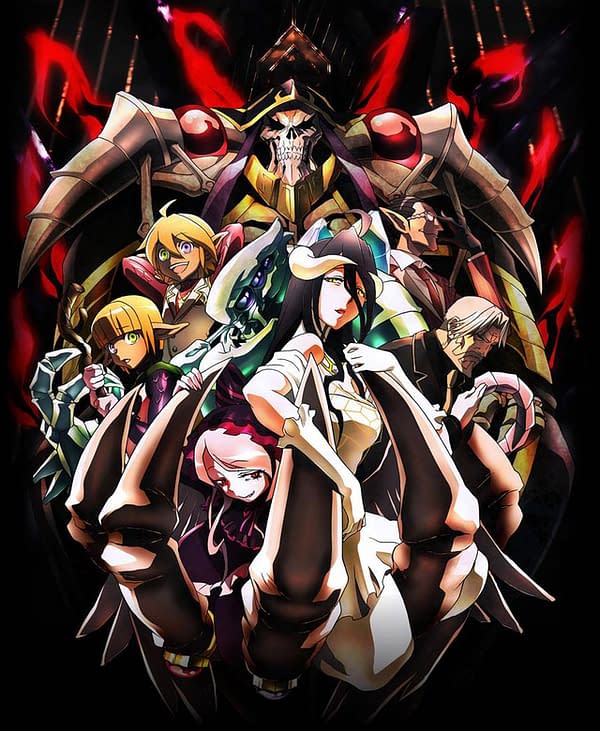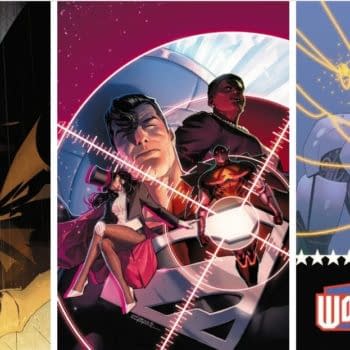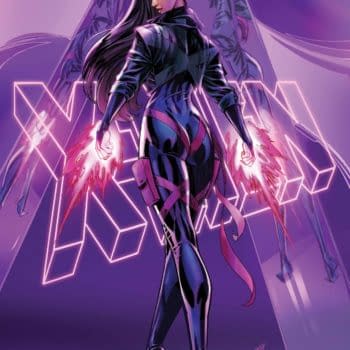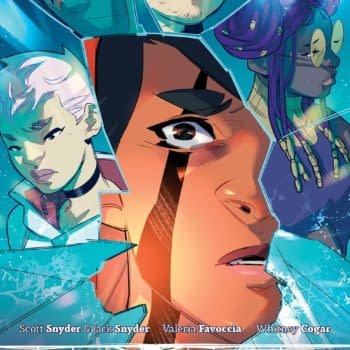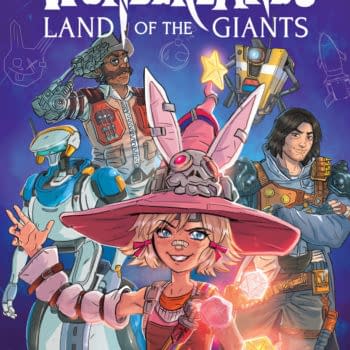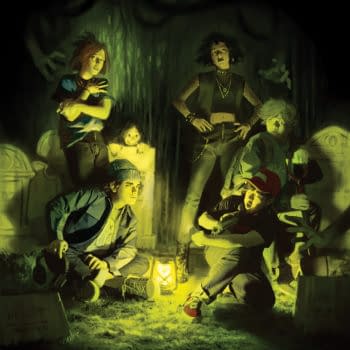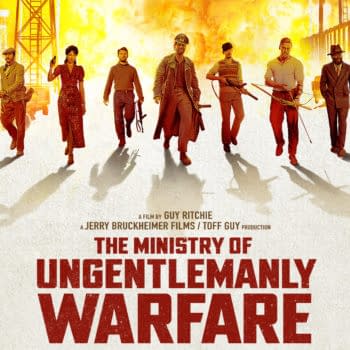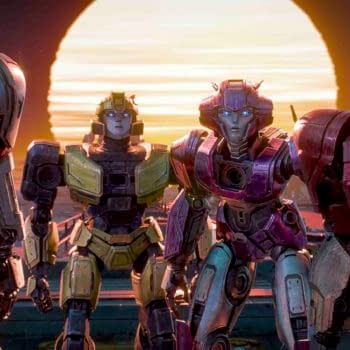Posted in: Look! It Moves! by Adi Tantimedh, Movies, TV | Tagged: anime, entertainment
How To Be An Overlord – Look! It Moves! by Adi Tantimedh
Adi Tantimedh writes,
Overlord is the latest anime series in the "trapped in a fantasy MMO game" genre that's popular in Japan. In a game whose servers are finally shutting down after its popularity began to wane after twelve years, a unnamed veteran player decides to spend the game's last night with members of the guild he befriended over that time to reminisce about the times they played the game together. During the lifetime of the game, their guild had earned a legendary reputation, maxing out their levels, building a massive fortress as their headquarters, embarked on epic quests, forged Legendary, god-level weapons, formed friendships and romances. Most of his friends and guild members had stopped played the game ages ago and when the last member has to log off to go to sleep, the hero decides to stay to the end, a once-popular game going out not with a bang but a whimper.
The next thing he knows, he wakes up to find he's still in the game world, unable to log off or leave. His UI commands no longer work and he's unable to contact any of the game's admin or moderators. On top of that, the NPC minions of the fortress are now acting like autonomous people with actual personalities. Fortunately, he's their overlord, a top-level god-like endgame boss, and they absolutely worship him. As he tests the limits of the world and its rules, which seems to follow the same rules of the game, he decides to make the best of his situation: why not become the overlord of this world? Why not conquer it and spread the legend of his guild? If the name of his guild is spread far and wide enough, it might attract any human players out there who might be trapped in the game as well, since everyone who played the game knows his guild. But first, in order to conquer the world, he's going to have to play war and politics because the NPC factions of the world are now waging wars and invading each other, and as a new, unknown faction, he's suddenly the wild card in this game of thrones. What he ends up playing now is a Machiavellian game of outsmarting the enemy, his god-like power levels also lets him scare the shit out of all of them as he ends up protecting the innocent from the machinations of war. In other words, he learns how to be a benevolent evil dictator.
[youtube]https://www.youtube.com/watch?v=jMoVmSV4yA8[/youtube]
After .Hack, Sword Art Online and Log Horizon, Overlord is another adaptation of a light novel series whose genre seems endlessly popular in Japan. What interests me is how it finds another variation on the themes inherent in the genre, and the fact that it's so popular as to be a sustainable commercial genre with a dedicated following. It also suggests how deeply games and gamer culture has penetrated Japan. These series are all steeped with insider views on the rules of fantasy role-playing games, featuring heroes who constantly analyse and exploit the rules and stats necessary for winning fights. Each of these series also feature heroes who are also social outsiders in real life but find their true calling in the games they're trapped in. The teenage hero of Sword Art Online overcomes his antisocial nature to accept a growing number of friends who support him. The hero of Log Horizon, a 20something college student, assumes the role of community leader and politician as he forms a working government and working economic and social system for the players to live meaningful lives in. The hero of Overlord, unnamed to emphasise his role as an everyman for the audience to identify with, is a salaryman with no friends or family in real life and starts to think he might be better off staying in the game world, since he's the opposite of a nobody here – he's a legendary lich wizard with followers who adore him. There's the desire to get away from a bleak reality, which in this case, is the economic and social stagnation of present-day Japan after the post-bubble years. Subtext moves closer and closer to the surface.
The series also manages not just to be Science Fiction but a prism through which the Japanese view and deconstruct Western High Fantasy with its wizards, knights and rogues fighting in cod-medieval kingdoms whose kings wage war against each other. There's satire and culture clash where the fantasy world might be a stand-in for the West as the self-effacing, embarrassed and slightly hapless Japanese hero finds himself up against what are essentially foreigners. There's also an amusing theme of role-playing as the hero keeps complaining privately about how exhausting it is to talk and behave like an all-powerful overlord since that's not really his nature at all, but he's still good at it. Good enough for his minions and subjects to want to be ruled by him. It's a fascinating prism into the fantasies and preoccupations of the Japanese nerd and how they view the world and themselves.
Evil dictator at lookitmoves@gmail.com
Follow the official LOOK! IT MOVES! twitter feed at http://twitter.com/lookitmoves for thoughts and snark on media and pop culture, stuff for future columns and stuff I may never spend a whole column writing about.
Look! It Moves! © Adisakdi Tantimedh


